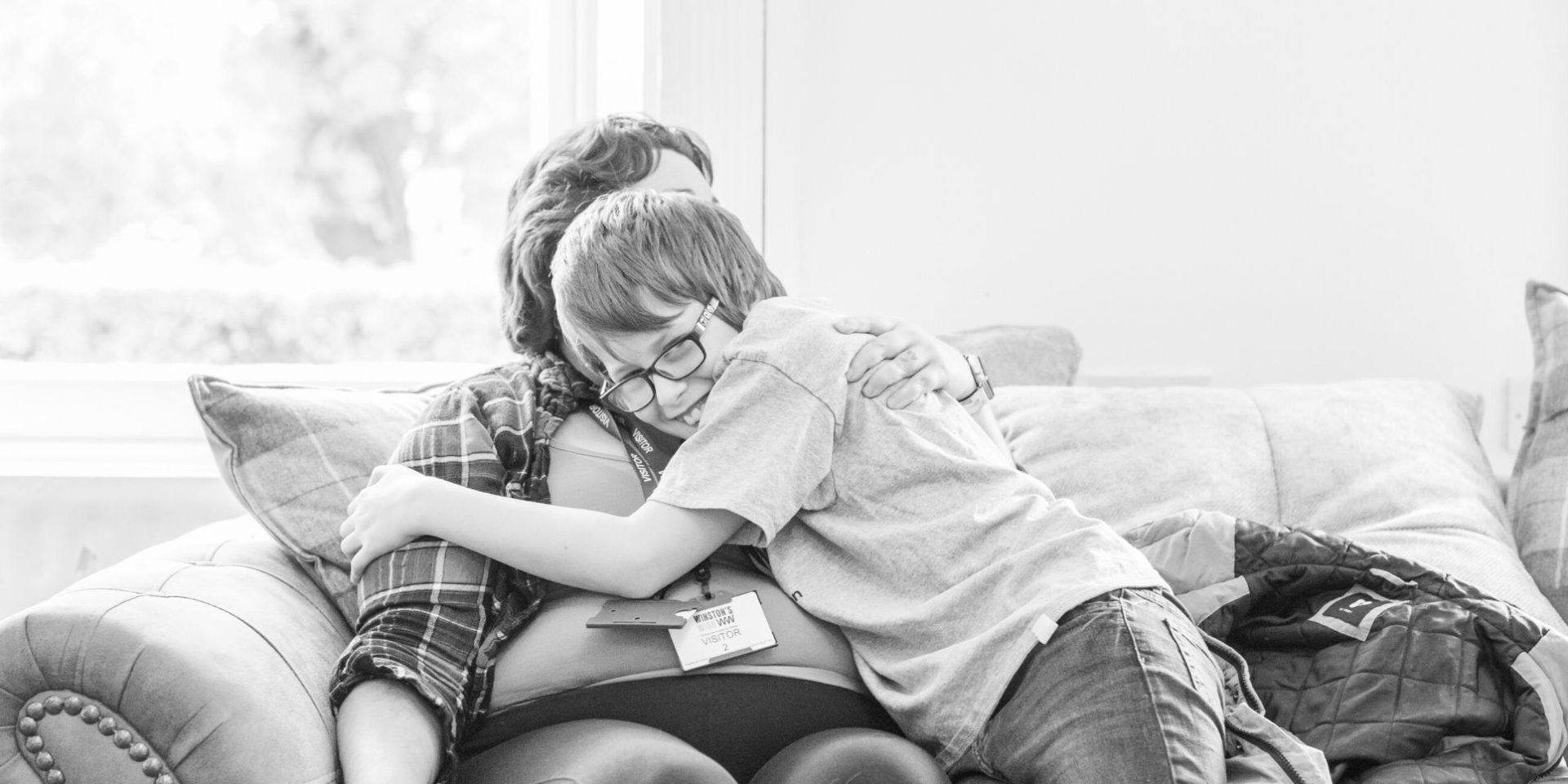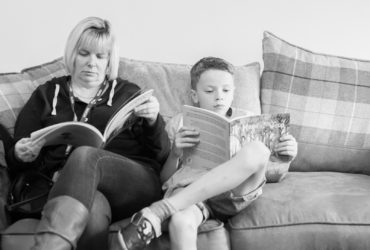Has your child become more clingy and anxious since going into lockdown? Or are you worried about your child’s separation anxiety resurfacing once they start returning to school and ‘normal life’? Both are perfectly natural and perhaps more likely for and young people who have experienced a bereavement.
Our team have been talking to lots of bereaved families during lockdown and a topic that regularly comes up is separation and the anxieties that go with it. Parents are telling us that their children are responding in one of two ways: they are either more anxious and need more contact with their significant carer or they are now less anxious. If your child is experiencing either of these, know that you are not the only one – many bereaved families are having the same experience. Both of these responses make sense and both present their own challenges now and as we start to come out of lockdown.
1. Becoming more anxious about being separated
What behaviour is common?
Some parents have been telling us that their child – who prior to lockdown was perfectly happy to go off and play by themselves, be separate from their parents and have some autonomy – has now become clingy and wants to know where their parents are at all times. Children who used to sleep in their own beds are no longer doing so and children who were happy with various people putting them to bed are now upset if it is not a specific person. This is really challenging for everyone.
Why are they behaving like this?
When we think about it, this seems an obvious response. Everything around your children is uncertain and changing. Their routines are new, they are hearing scary things on the television and they are being asked to behave in ways that are alien. One natural response to this is to try and control the environment as much as they can.
For children where one parent has died, worrying about what might happen to the remaining parent is very real. We can’t reassure them that nothing will happen as this virus is really unknown to all. What we can do is reassure the child that we won’t keep secrets from them and reassure them of all the things you are doing to keep safe. You could tell them it is unlikely they or you will get the virus and if you do you will probably only be ill for a few days. Maybe remind them that some people only experience mild symptoms and reassure them that more people are recovering from the virus than dying from it.
2. Separation anxiety reduced during lockdown
What behaviour is common and why?
Other parents have told us that prior to lockdown their child was really struggling with being separate from them. These children were worried that something might happen and they wouldn’t be there or that something bad might happen to their remaining parent. Now we are in lockdown these children have had their anxiety calmed because they are around their parent all the time and there are no stress point of separation.
What will happen when we come out of lockdown?
You are likely to be worried about what will happen when lockdown is lifted and your children return to school, childcare with friends and relatives, parties… will their anxiety be worse? Will the progress they were making before lockdown be back to square one? Will their anxiety be gone? Managing the unknown of the future is really hard for all of us and is compounded by the grief that you are feeling.
What can I do to help?
Coming out of lockdown is largely unknown to us all. When will it happen? What will the process look like? When can we go back to school/work/normal life? All of this, compounded by the worry of how your child might cope can feel really overwhelming. However, there are a few things you can do now that might help in the future:
1. Listen to what your child is telling you. Not just what their words are telling you but also their behaviour. This will give you lots of clues about when they need from you.
2. Validate how they are feeling. These feelings probably aren’t new. They have probably been worried before – what did you do when they were worried last time? Maybe try that again.
3. Have a plan. Talk together about going back to being separate. Maybe you could read the book The Invisible String together? Maybe you could paint stones in preparation for swapping when you go back? Or do one of our other activities.
4. Don’t panic. We’re working hard to support schools in preparation for returning. Your child is certainly not going to be the only child who may struggle with going back.
5. Ask for help. Our Helpline is open Monday-Friday, 9am-5pm and the team are there to talk, advise and guide you on supporting your child. Call them on 08088 020 021 or email ask@winstonswish.org
What we can say in all of this uncertainty is the we know that children and families are able to rebuild their lives following traumatic events and the skills they have learnt will help them as we come out of lockdown. Remember that both of these responses are perfectly normal in a very abnormal situation. You are enough for your child and you will manage and cope.
Other articles you might find helpful
Publications and resources
Our specialist books include ones on supporting children and young people after a death through suicide, homicide and in the military.
Activities to do at home
Activities to help grieving children and young people to explore and express their feelings and emotions and to help them maintain memories of the person who has died.




